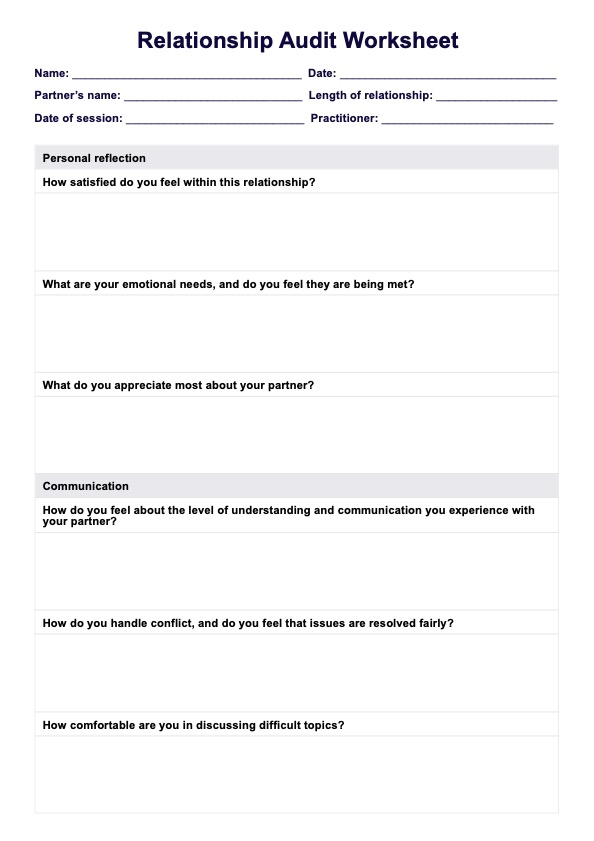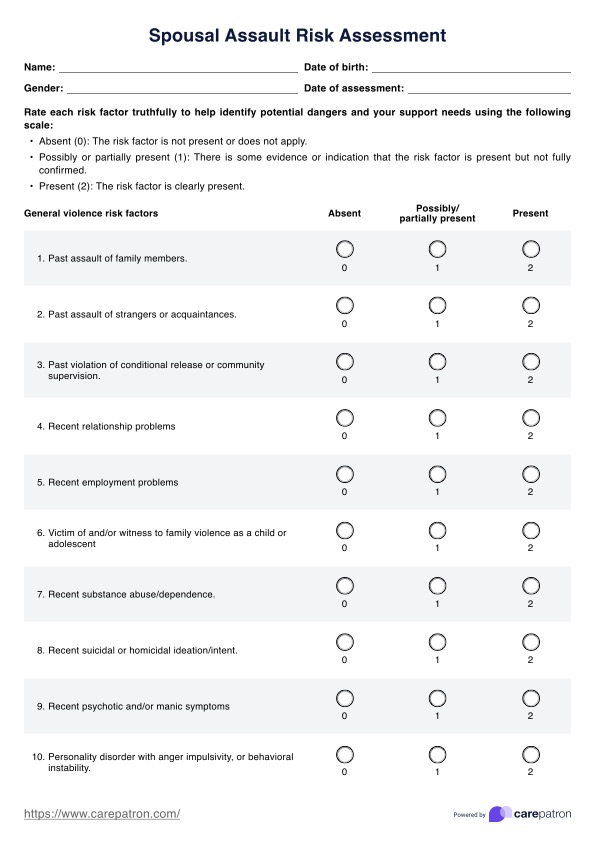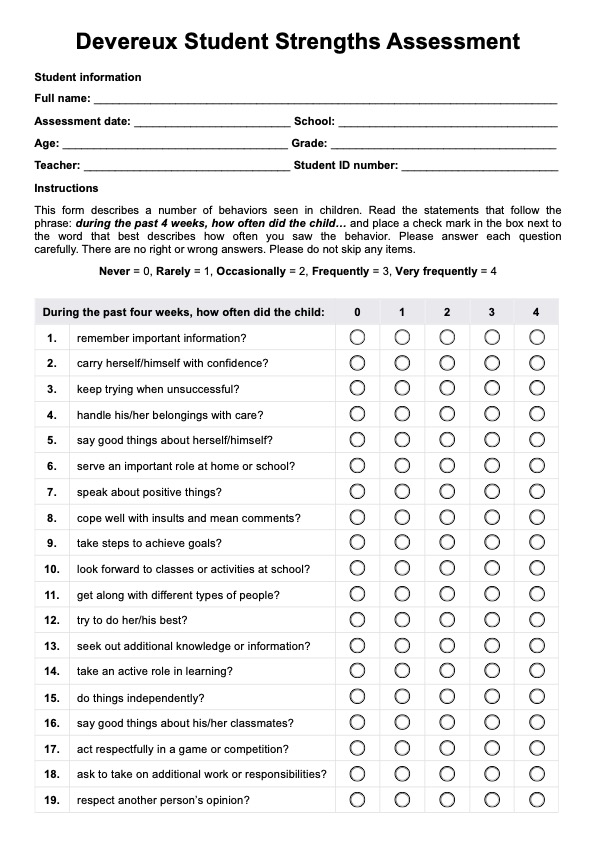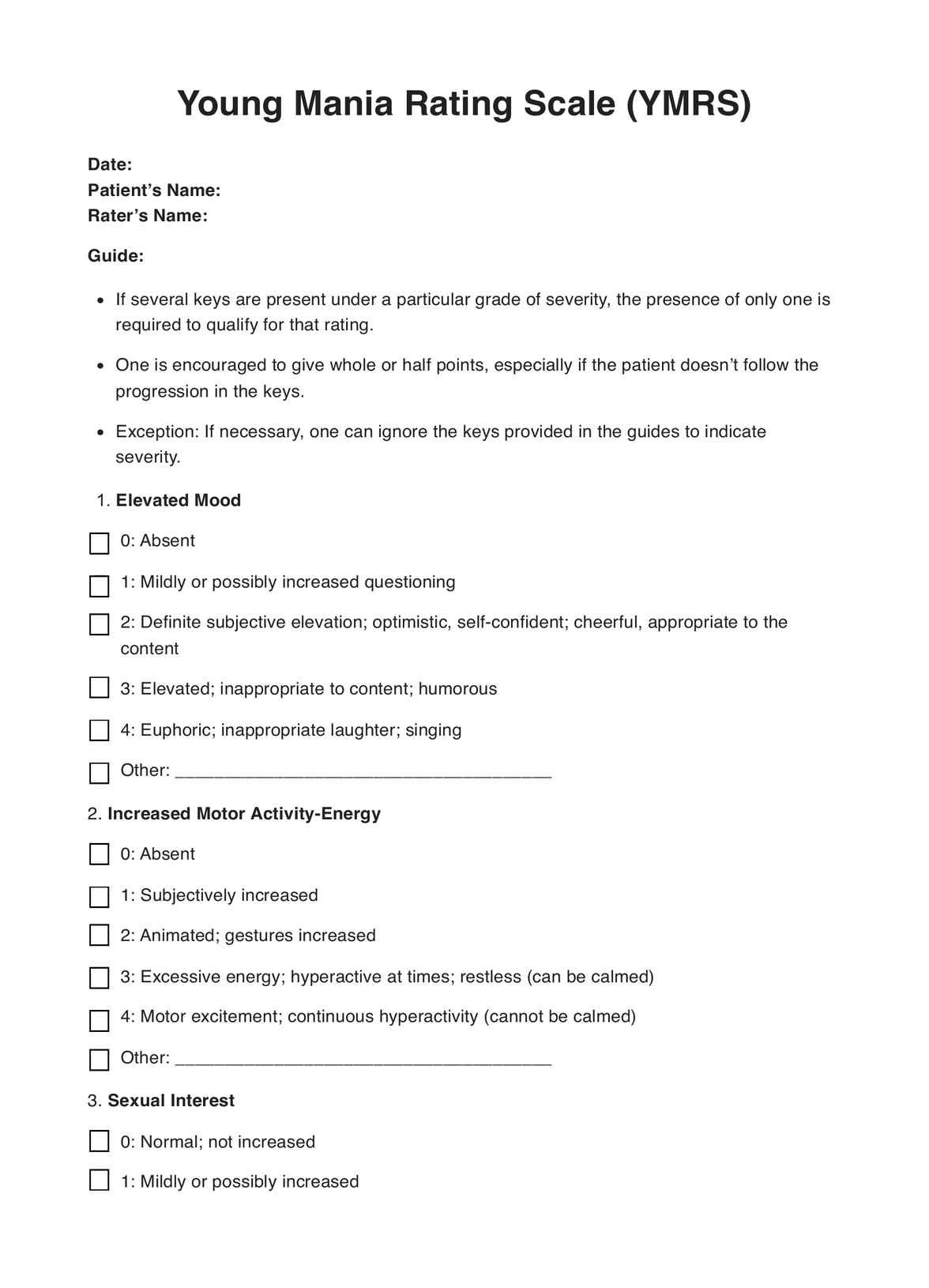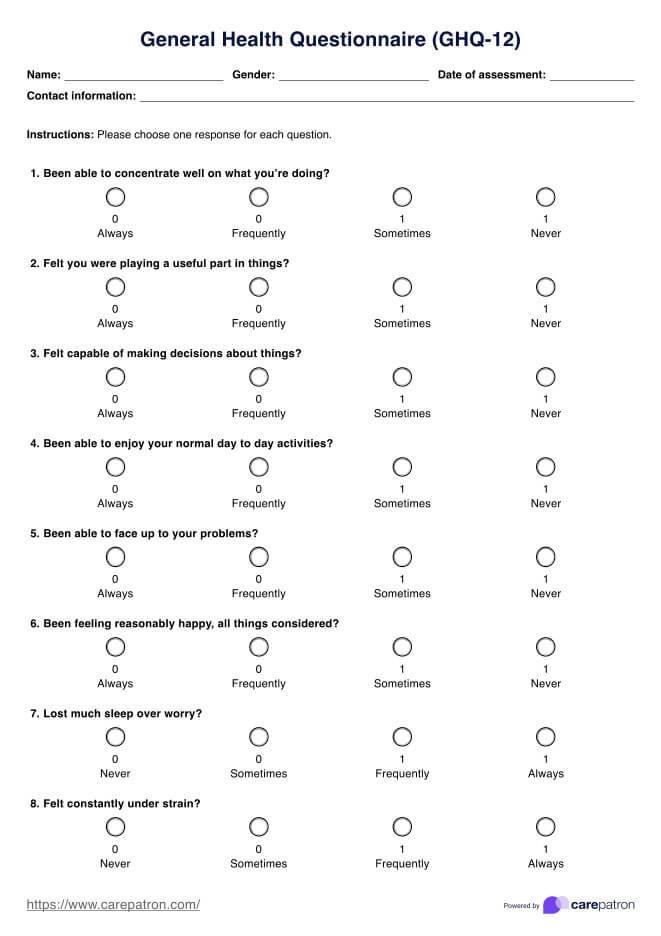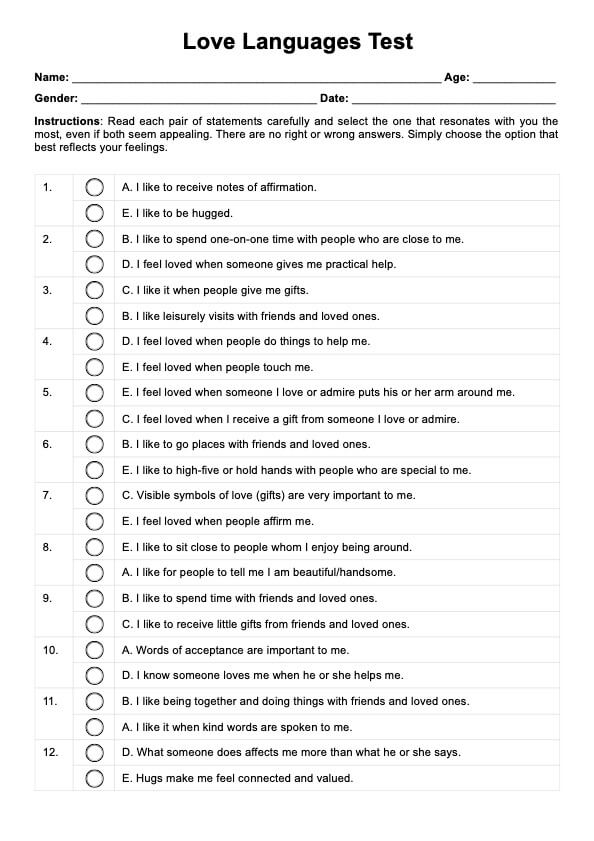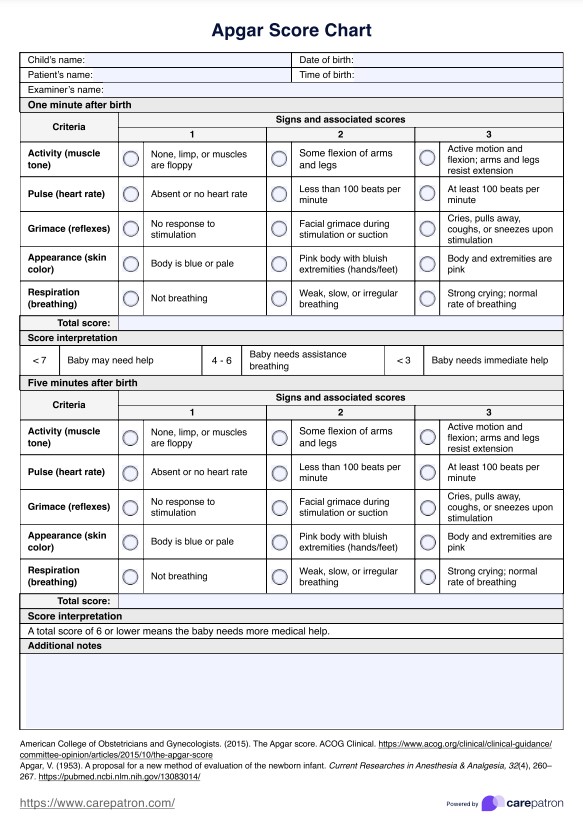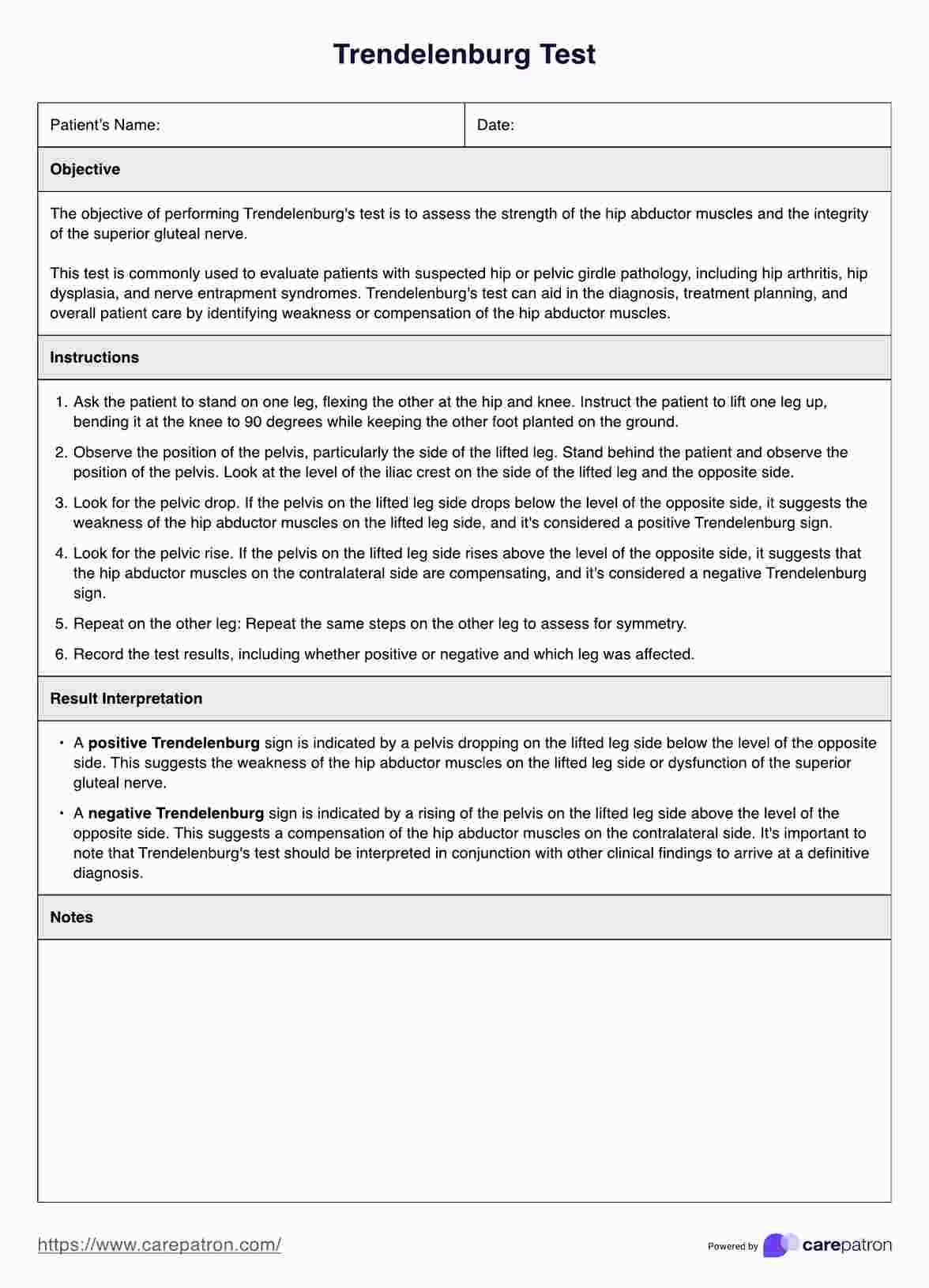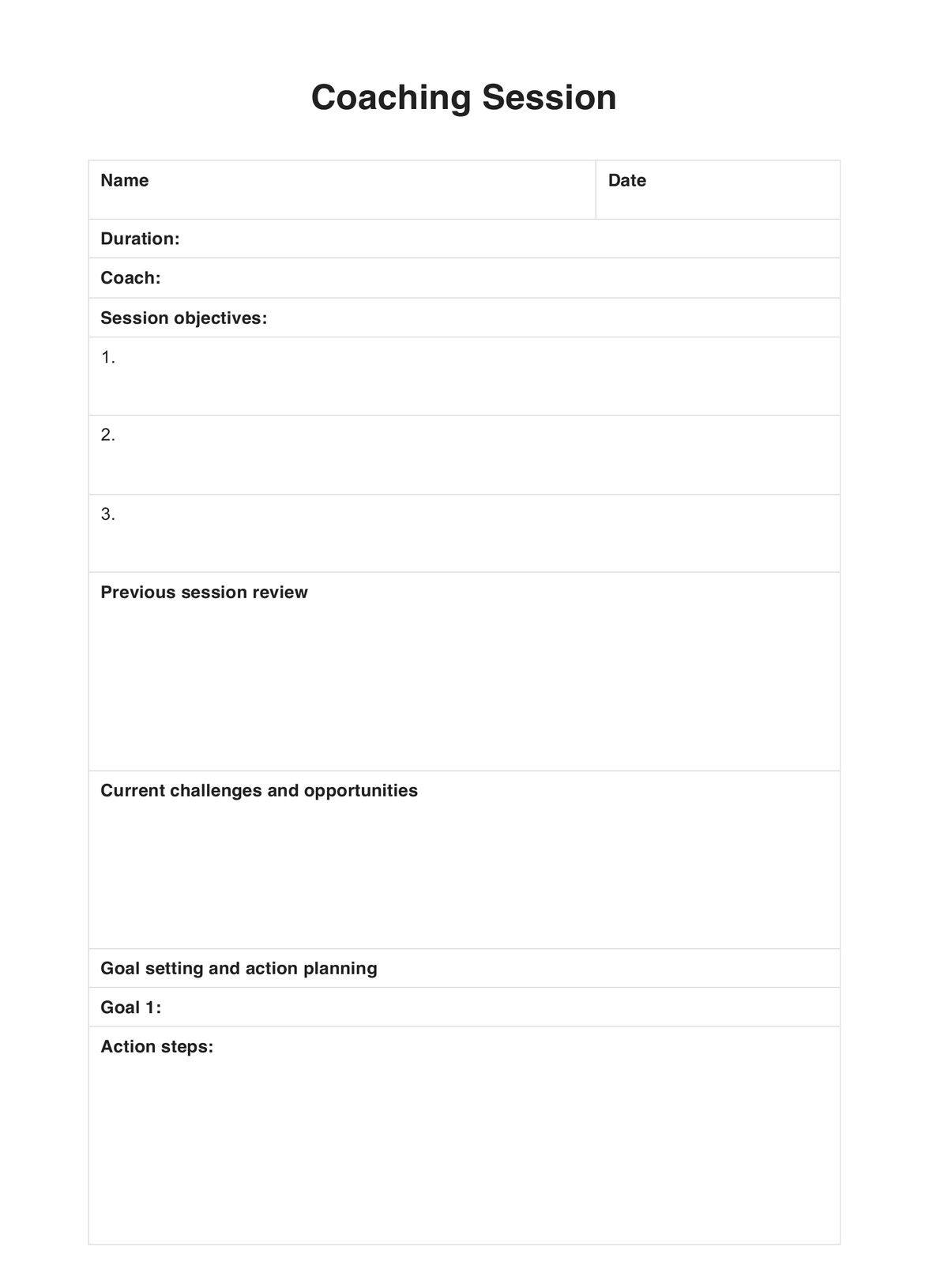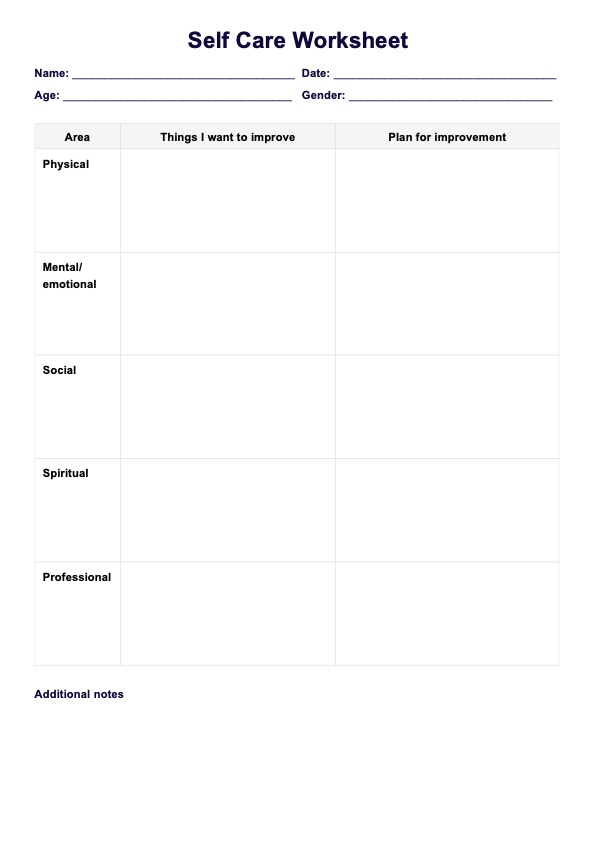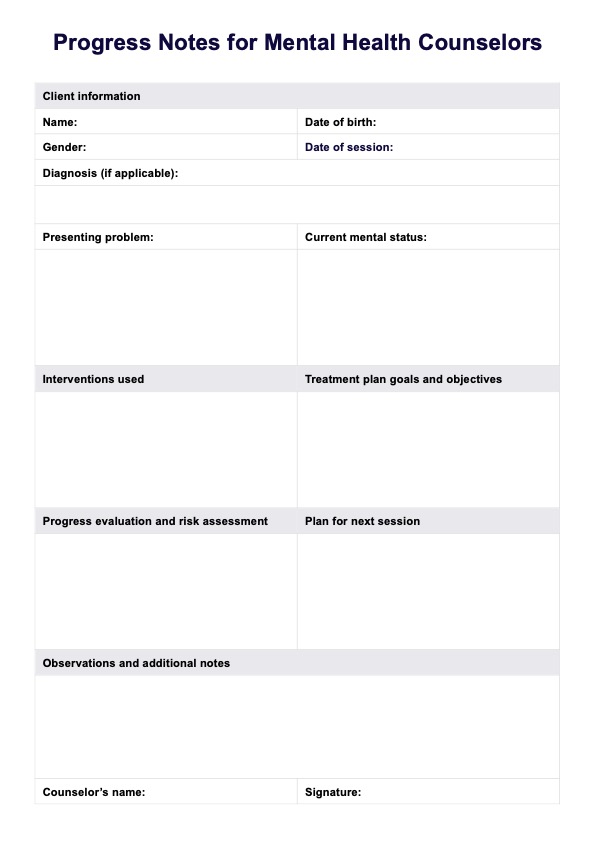Vulnerability Worksheet
Discover the Vulnerability Worksheet, a powerful tool for helping patients enhance self-awareness and emotional resilience.


What is vulnerability?
Vulnerability plays a crucial role in mental health and personal growth. It is the complex interaction of emotional exposure, uncertainty, and interpersonal risk that fundamentally shapes human experiences and relationships. At its core, vulnerability emerges when individuals open themselves to potential emotional, physical, or psychological uncertainty while engaging with others or confronting personal challenges.
The exploration of vulnerability in psychology has seen significant attention, particularly from researchers like Brené Brown. Historically, vulnerability was viewed negatively, linked with weakness, emotional distress, and susceptibility to harm.
However, this notion is challenged as it is important for authentic connections and mental health in everyday life. Dr. Brené Brown's TED talk and her subsequent work reveal that vulnerability is a cornerstone for creating meaningful relationships and fostering resilience (Brown, 2015). It now portrays vulnerability as a strength and a crucial element in building authentic relationships and personal growth. This new understanding highlights the courage and resilience required to embrace vulnerability in a society that often values stoicism and self-reliance.
Vulnerability Worksheet Template
Vulnerability Worksheet Example
How to use our Vulnerability Worksheet
Our Vulnerability Worksheet PDF is essential for mental health professionals to guide their patients in exploring and embracing vulnerability. Here's how to effectively use the worksheet in a therapeutic setting:
Step 1: Access this template
You can access the Vulnerability Worksheet template through the Carepatron app by clicking "Use template." The template is designed to be printable, editable, and shareable, making it useful in various clinical contexts. Alternatively, you can click "Download" to get a fillable PDF.
Step 2: Introduce the concept of vulnerability
Explain the concept of vulnerability to your patient. Discuss its importance in mental health and personal growth, ensuring they understand the purpose and benefits of exploring vulnerability.
Step 3: Guide through self-reflection
Facilitate a process of self-reflection using the worksheet. Encourage your patient to thoughtfully answer questions about how they define vulnerability, past experiences related to it, and their responses.
Step 4: Develop strategies for embracing vulnerability
Work with your patient to identify small ways to practice vulnerability. This includes finding a safe space, challenging negative beliefs, and setting realistic goals for becoming more open and vulnerable.
Step 5: Provide support and feedback
Offer continuous support and feedback throughout the process. Address any concerns and help your patients navigate the challenges they may face as they work on becoming more vulnerable.
The benefits of being vulnerable
Embracing vulnerability, despite making many people feel uncomfortable, offers several advantages for emotional health and interpersonal relationships. Here are some key benefits:
Builds deeper relationships
Embracing vulnerability is the foundation of deep, meaningful, and long-lasting relationships. While there may be gender differences in vulnerability expression, embracing vulnerability can foster trust and authenticity, allowing individuals to connect more genuinely.
Enhances self-acceptance
Being vulnerable helps individuals accept their true selves, including their flaws and weaknesses. This self-acceptance is crucial for self-esteem and mental well-being.
Encourages emotional growth
Vulnerability promotes emotional growth by challenging individuals to confront, process, and experience emotions fully. It leads to improved emotional intelligence and resilience.
Improved mental health and emotional processing
When individuals allow themselves to be vulnerable, they experience enhanced emotional regulation. This process is particularly beneficial for those struggling with addictive behaviors, as vulnerability enables more honest self-assessment and willingness to seek help.
Physical and psychological resilience
Physical vulnerability, often seen as a limitation, actually contributes to better health outcomes when acknowledged and addressed openly. Individuals who accept their physical limitations often develop more effective coping strategies and experience better overall well-being.
These benefits illustrate why vulnerability is not only a brave choice but also a beneficial one for emotional and relational health. Embracing vulnerability allows individuals to enjoy richer relationships, greater self-understanding, and the opportunity to live greatly with enhanced emotional wellness.
Reference
Brown, B. (2015). Daring greatly: How the courage to be vulnerable transforms the way we live, love, parent, and lead. Avery.
Commonly asked questions
A Vulnerability Worksheet is a structured tool for individuals to explore their feelings and beliefs about vulnerability. It encourages self-awareness and helps identify barriers to being vulnerable by guiding users through reflective questions.
A Vulnerability Worksheet can benefit individuals seeking personal growth, improved emotional intelligence, or better relationships. It is particularly useful for those struggling to express emotions or fear intimacy. Mental health professionals may also use it as a therapeutic tool to help clients explore and embrace their vulnerabilities in a safe environment.
Common fears associated with vulnerability include the fear of rejection, judgment, or ridicule from others. Many individuals worry that exposing their true selves may lead to emotional pain or loss of control over their image. These fears can create barriers that prevent meaningful connections and hinder personal growth, making it essential to address them through self-reflection and supportive environments.


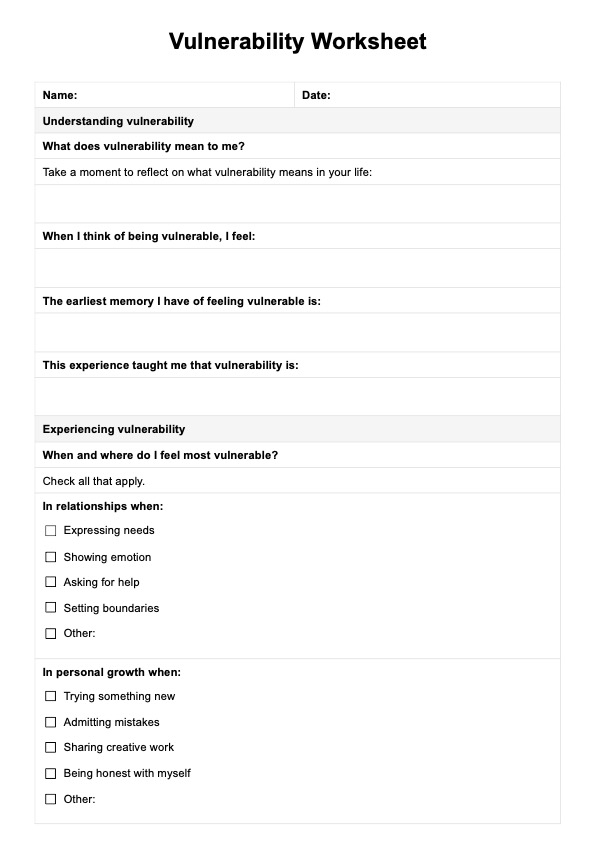
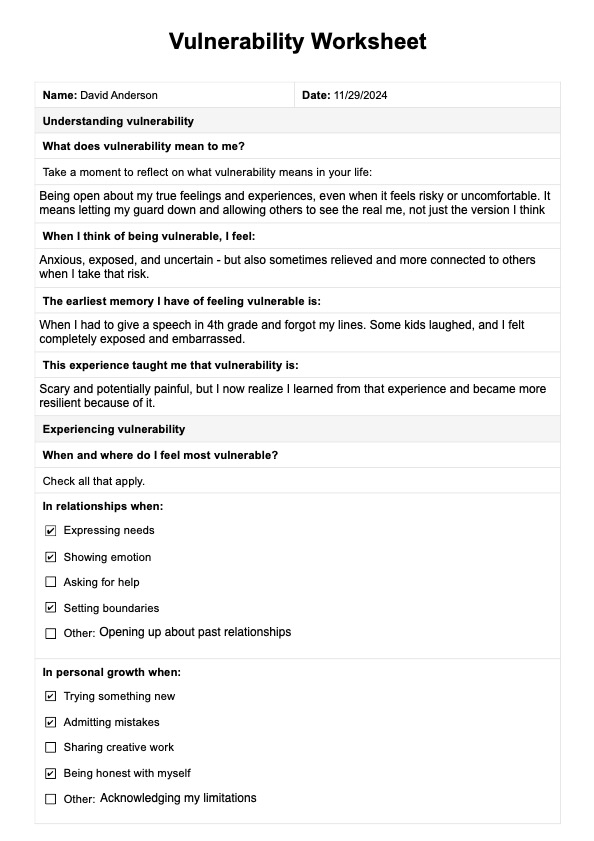

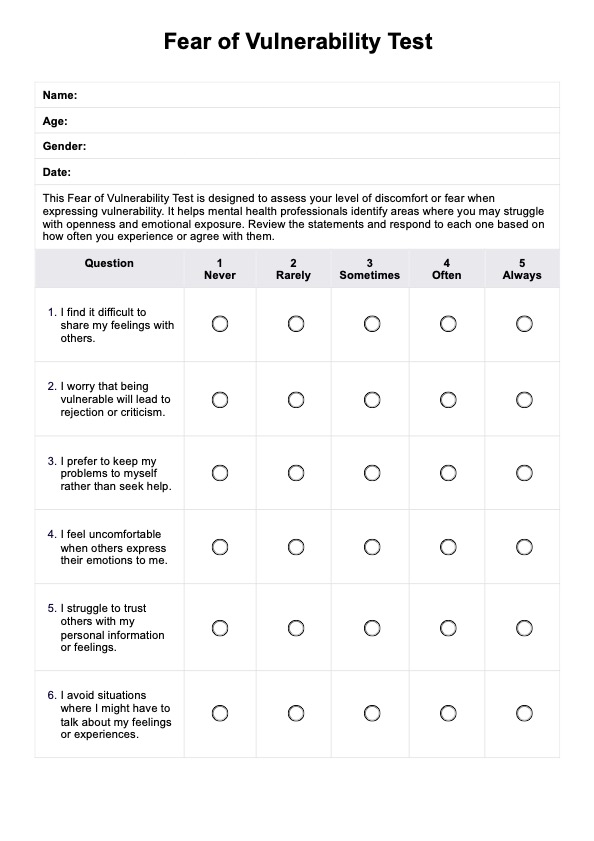
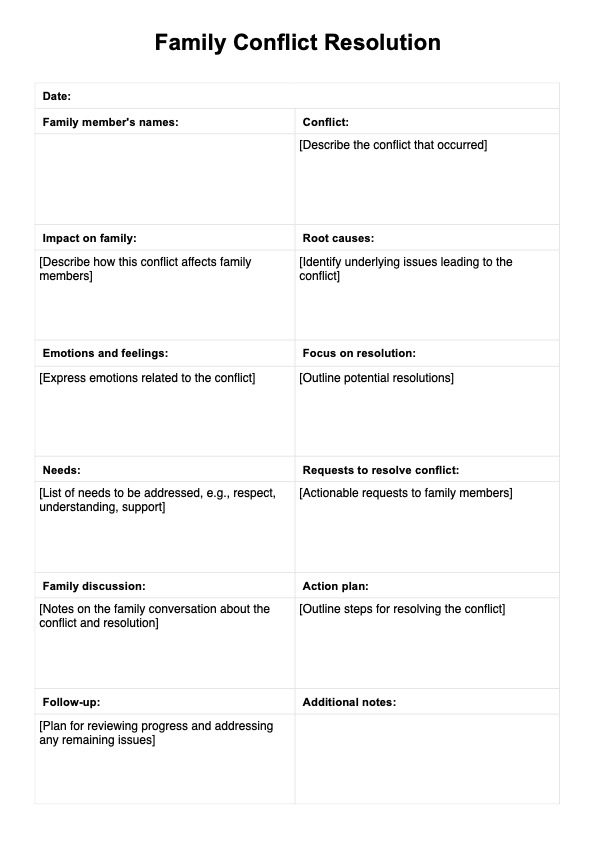















-template.jpg)


